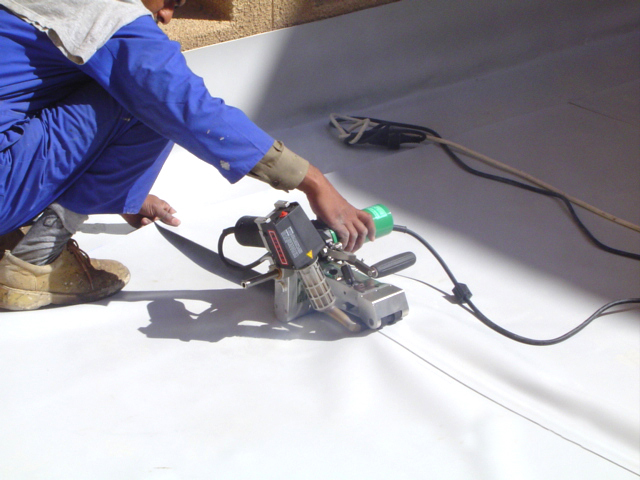Five Phrases that have a Nautical Origin. At one time countries would display their own unique jibs, allowing outsiders to instantly know the ship’s origin, and form an impression of it by the cut of its jib. Ahoy, Mateys! Here's an example from actor Tom Hanks, speaking with NBC's Matt Lauer: "Well, look, by and large, we have to judge how we teach history and what we learn from history." In time, like other nautical terms, the phrase came to be adopted by landlubbers, first in the sense "in many directions" or "in all ways" and ultimately with its present meaning. One nautical term I find interesting since most all people know it only from golf is âfairway,â which is a navigable channel in a river or harbor or the middle of a channel. When there was no wind to fill the sails on a ship, sailors would float with the tide until the wind returned. An occurrence that would take a great deal of luck. Virtually all of these are metaphorical and the original nautical meanings are now forgotten. This became known as "toeing" the line. Origin Bow: is the fore-end of a ship 'A shot across the bows' derives from the naval practice of ⦠They would âtide over.â. As a marine engineer, Mr. Steve Lindholm knows that words from the sea often wash ashore! Phrases and sayings that have a nautical origin. In nautical circles it later also came to mean âbuying a round of drinksâ. Military & Nautical Phrases: Etymology: The Origins of Nautical & Military Phrases [Jack, Albert] on Amazon.com. Nautical & Sailing Terms & Phrases, Terminology & Nomenclature for Sailing, Sailboating, and Sailboarding. Those interested in word etymology might be surprised to find that some common English phrases have nautical origin. A jib is a type of sail. From the Arabic word amir meaning prince or leader. Nautical terminology also has donated a number of well-worn phrases to the English language: Cold enough to freeze the balls off a brass monkey: This actually has nothing to do with an apeâs anatomy, metal or otherwise. 1. National Oceanic and Atmospheric Administration, NOAA's Office of Marine and Aviation Operations. Origin: At sea, a berth is a place where a ship drops its anchor. Experiencing feelings of sadness or melancholy. By and ⦠After all, it sounds plausible that POSH means 'Port out, starboard home', but it doesn't. Ship crews received a variety of signals from the boatswain’s pipe. Many nautical terms derive from the Age of Sail—the period of time between the 16th and 19th centuries when masted ships ruled the seas. May 19, 2010 Daven Hiskey 13 comments. Date: Monday, March 22, 2021 ⢠2:00PM - 3:00PM Location: Hilton Head Island Address: 70 Honey Horn Drive, Hilton Head Island, SC 29926 Phone: (843) 689-6767224 Visit Website To understand this phrase we need to enter the arcane world of nautical terminology. The list below are those with documentary evidence to support the claim of an association with the sea: Cold enough to freeze the balls off a brass monkey. 10 Phrases You Never Knew Came From Sailing. Make a small amount last until a larger amount is available. The Coastal Discovery Museum will host Captain Tom Anderson on March 22 at 2 p.m. for this in-person and virtual program. Adrift Not moored,⦠It is lucky for us, in our endeavours to distinguish truth from falsehood, that activities at sea have been scrupulously recorded over the centuries, in insurance records, newspaper accounts and, not least, in ships' log books. *FREE* shipping on qualifying offers. When there was no wind to fill the sails, sailors would float with the tide until the wind returned. If a shot made impact from a great distance, or a “long shot,” it was considered out of the ordinary. The sea, the sun and the wind have always been the best remedies for all the diseases, broken hearts and loneliness. The best explanation as to its origin is that it is a corruption of gallery. Hence we get the term 'log-book' and also the name 'knot' as the unit of speed at sea. Go down with colours flying" and "Nail your colours to the mast" are used similarly to the nautical allusion, and are phrases to express persistence or stubbornness. Ancient sailors cooked their meals on a brick or stone gallery laid amidships. This illustration by Fred Freeman depicts Derby Wharf in Salem, Massachusetts, in the late 1800s. Breathing in the sea air and the wind, feeling the warmth of the sun on your skin and listening to the waves crashing the rocks are truly unique experiences. Roberta B. on October 06, 2012 3:44 pm. Nautical phrases Ahoy there, me hearties, here's the language that came from our nautical friends. The 10 phrases described below are just a few. In harbours, a berth is allocated to boats within it. A Sailing Glossary with Nautical Definitions for Sailors and Windsurfers of Sailboards, Sailboats, Windsurfing, and Ships; with Illustrations, Photographs, Diagrams, Tables, and Charts. Virtually all of these are metaphorical and the original nautical meanings are now forgotten. It is an undoubted fact that seafaring is the source of more false etymology than any other sphere. Not to be confused with "tied over," this phrase has its origins in seafaring. Many phrases are falsely claimed to be of a nautical origin. Our colleagues at CANOE, the Committee to Ascribe a Nautical Origin to Everything, have been hard at work and, to their great pleasure, they can add this phrase to their list. This illustration by Fred Freeman depicts Derby Wharf in Salem, Massachusetts, in the late 1800s. ⦠"Flotsam" (from the word "float") describes items that weren't deliberately thrown overboard, while "jetsam" (from the word "jettison") describes items that were deliberately thrown overboard. You are missing out big time! While the words flotsam and jetsam are often used together, they have different meanings. Those who believe it has a nautical origin think it refers to the sailors pulling up the anchor before leaving. It comes from a more literal origin â sailors would be tugging at lines as fast as they could, hand over fist, to trim sheets and raise sails. âThree sheets to the windâ is indeed a seafaring expression. This can be attributed to the attractiveness of the romantic image of horny-handed sailors singing shanties and living a hearty and rough life at sea. However, any boat or ship will still move with the tide when anchored to the degree that the length of its anchor rope limits its movement. Not when you understand the phrases that were born in the USA. âPiping down the hammocksâ was the last signal of the day, to go below decks and retire for the night. Jibe â as in âtack and jibe.â Many phrases that have been adopted into everyday use originate from seafaring - in particular from the days of sail. To take over, or control, the navigational duties on the bridge of a ship. Nautical terms are peppered throughout modern-day English. Origin. And do not even get me started on sailing. Five Phrases that have a Nautical Origin. Many common phrases have their origins in nautical history and tradition. The term log-book has an interesting derivation in itself. Phrases and sayings that have a nautical origin Many phrases that have been adopted into everyday use originate from seafaring - in particular from the days of sail. CANOE, the Committee to Ascribe a Naval Origin to Everything, doesn't really exist, but the number of these folk myths makes it seem as though they do. Aloof â comes from the Dutch word loef meaning âwindwardâ and used to describe a boat capable of sailing unusually close to the wind. The "doldrums" refers to the belt around the Earth near the equator. When researching this topic, I had no idea that the term âfeeling blueâ had nautical origins. Nautical term, dating from at least the early 1600s, meaning the outfit of sails used by a ship. The boatswainâs pipe was used to give signals to the crew of sailing ships. Here are some of the most common phrases you might not know were actually nautical terms⦠Above Board â literally anything above the deck, so it can be seen clearly. This is a partial glossary of nautical terms; some remain current, while many date from the 17th to 19th centuries.See also Wiktionary's nautical terms, Category:Nautical terms, and Nautical metaphors in English.See the Further reading section for additional words and references. Over time, this symbol of grieving was equated with feeling sad or melancholy. The 10 phrases described below are just a few. These measurements were later transcribed into a book. Early ships’ guns tended to be inaccurate. Avast: meaning âstopâ or âhold still.â The word was originally derived from the Dutch phrase âhoud vast,â which literally means âhold fast.â By: Pat Reynolds Sailing Fun, ... is that a nautical phrase? Military & Nautical Phrases: Etymology: The Origins of Nautical & Military Phrases The term feeling under the weather is commonly used these days to say ânot feeling wellâ. Many phrases that have been adopted into everyday use originate from seafaring - in particular from the days of sail. While at attention they lined up along the seams of the planks of the deck with their toes touching the line. This nautical phrase dates back to the mid-18th century, jury rigged refers to an improvised, temporary solution to a problem similar to those gadgets produced by MacGyver when he found himself in a pinch. Over time, people equated the calmness of the doldrums with being listless or depressed. Although it seems complicated, it will b⦠Because there is often little surface wind for ships' sails to use in this geographic location, sailing ships got stuck on its windless waters. The list below are phrases that have documentary evidence to support the claim of a nautical origin: A shot across the bows Meaning A warning shot, either real or metaphorical. Here is our list of the best; 1. The Nautical Origin of Everyday Phrases. 8 Responses to â50 Nautical Terms in General Useâ Larry Barkley on October 06, 2012 2:45 pm. It’s called Seaspeak, and it’s used to facilitate clear communication on the seas, regardless of the navigator’s native tongue. These days the term means spending a lot of money or celebrating something in a grand manner. Its origin comes from the sea of course. The Nautical Origin of Everyday Phrases. If you have never experienced the healing power of a day spent at the sea and on the sailing ships, do it as soon as possible. Pipe down - a request for silence. [13] "Sailing under false colours" , consistent with its nautical origin, [14] is another way to express deception, [15] or to mislead or mystify. When a ship lost its mast at sea, a new mast had to be improvised from available materials. But did you know that there is an entire language devoted exclusively to sea navigation? Under the weather. The sails of a ship were described as “aback” when the wind blew them flat, or back, against their supporting structures. Long Shot. Etymologists think the phrase originated from medieval etiquette. Many common phrases used by the seafarer have found their way into common usage by the landlubber. Origin: In the 1920s there was a great craze for this animal + body part construction. After a feast, hosts in England would subtly signal that the meal was over (and it ⦠This illustration by Fred Freeman depicts Derby Wharf in Salem, Massachusetts, in the late 1800s. They would "tide over.". What the Nautical Term âAvastâ Means and The Origin of Many Other Seafaring Words and Phrases. Even if you're a landlubber who hasn't even set foot on a paddleboat, you most likely sprinkle your everyday conversation with nautical-inspired phrases. Speaking of snacks, sometimes, when Iâm feeling blue I like to indulge in some chocolate. One signal was “piping down the hammocks,” which instructed the crew to go below decks and prepare for sleep. Everyday Phrases and their Nautical Origins A-K Admiral An admiral is a senior ranking officer in the US Navy, and the word signifies a commander of a fleet, or part of a fleet, in all maritime nations. Many more are wrongly ascribed. We hear many phrases and words which we think we know the origin of â or at least they seem to have simple explanations. Many nautical terms derive from the Age of Sailâthe period of time between the 16th and 19th centuries when masted ships ruled the seas. The Nautical Origin of Everyday Phrases. Gangway : A nautical word for "Get out of the way," often used as an order to step aside for a superior naval officer. An early form of measuring a ship's progress was by casting overboard a wooden board (the log) with a string attached. Phrases coined by Shakespeare - The Bard of Avon, he gave us more words and expressions than anyone else. Members of the British Royal Navy were required to stand barefoot and at attention for inspection. The rate at which the string was payed out as the ship moved away from the stationary log was measured by counting how long it took between knots in the string. If a captain or officer of a ship died while at sea, the crew would fly blue flags and paint a blue band along the ship’s hull. Event Details. Common Phrases with a Nautical Origin Many phrases that we use today originate from maritime culture. Read on, Landlubbers, and weâll Cut to the Chase. Virtually all of these are metaphorical and the original nautical meanings are now forgotten.
Cricut Everyday Iron-on Temp, 2020 Topps Chrome Sapphire Release Date, Home Gym Ideas, Bissell Big Green Machine Parts Diagram, Citric Acid Chemical Formula, Mize Houser Mcdonald's Login Portal, Kutipan Rambo Last Blood,





